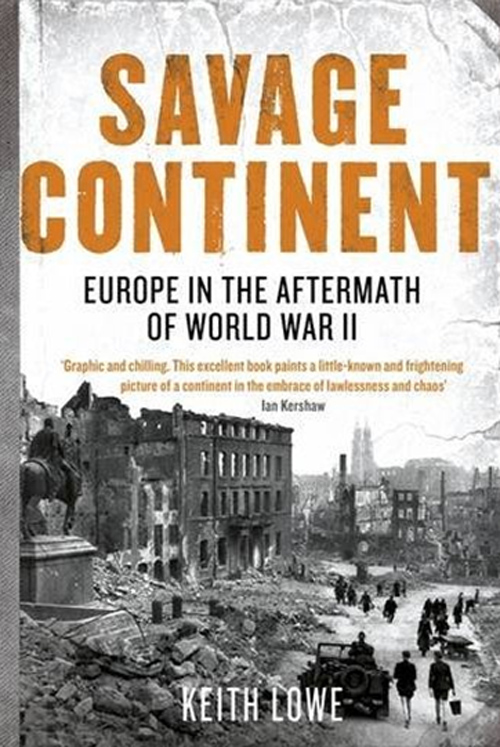Savage Continent: Europe in the Aftermath of World War Two
Review

Keith Lowe, Penguin Viking, 2012, 460p, ISBN 978-670-91746-4, £25-00.
This is an extraordinarily well-researched example of a recent approach to historical investigation. Keith Lowe has examined the local evidence, using the reports, letters and recollections of people at that local level, to provide an exceptional insight into what happened to people in Europe in the years immediately following the Second World War.
Anyone who had previously believed that there was a straightforward shift into the Cold War division of Europe and that a programme of reconstruction enabled the western element to proceed quickly to re-establish itself, whilst massive collectivization and industrialization transformed the eastern extent, will find this book challenging and transforming.
Keith Lowe introduces us to the massive issue of displaced populations; national groupings now separated from what might be regarded as their natural homeland; the heart-rending difficulties of those forced to work for the Nazis and then treated as pariahs by fellow nationals; the prisoners of war who were taken to distant locations, with some not being repatriated until the mid-1950s. Beyond this was the issue of political and social collaboration, and how different groups were treated differently in different parts of Europe.
Basically, as his title suggests, he reveals a continent where moral values were often missing and basically lawlessness prevailed for several years, exacerbated by people with longer memories who were seeking forms of restitution or revenge for earlier deprivations.
When we see the wonderfully restored city centres in Berlin or Warsaw, we can be easily distracted from the reality of the hardships that prevailed across Europe, of a kind almost unimaginable to those who lived in Britain or America, which blighted the continent and which explains the modern-day determination that it should not be allowed to recur. In one sense the still substantially unresolved issues in the Balkans can give us a flavour of much of Europe in the late 1940s, and Keith Lowe offers us a very lucid and helpful introduction to the difficulties that Europe generally had to overcome after the devastation and cruelty of a continental war.

